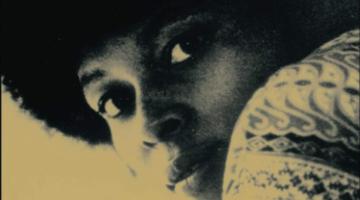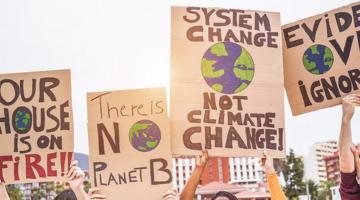Colonial relations of power and ways of classifying human persons that were essential to political colonialism have persisted.
“Fanon and Baldwin commit to hastening the end of that which those committed to western modernity hold to be sacred.”
In this series, we ask acclaimed authors to answer five questions about their book. This week’s featured author is Joseph Drexler-Dreis. Drexler-Dreis is Assistant Professor of Theology at Xavier University of Louisiana. His book is Decolonial Love: Salvation in Colonial Modernity.
Roberto Sirvent: How can your book help BAR readers understand the current political and social climate?
Joseph Drexler-Dreis:The ways in which white supremacy has been made visible in the current political climate are, as many have pointed out, part of a long history. My book contributes to an intellectual tradition that situates that history within the history of colonialism in the North Atlantic world. With decolonial theorists, it refers to the context in which we’re living as “colonial modernity.” While movements for decolonization have to a large extent broken up colonialism as a political institution, the relations of power, hierarchies, economic systems, and ways of classifying human persons that were essential to political colonialism have persisted. In this way, colonial relations—a broader reality than political colonialism that decolonial theorists refer to as “coloniality”—provide the foundation for the historical epoch generally called “western modernity.”
Understanding the current political and social reality in terms of coloniality has some advantages. It privileges the long history of relations and exchanges in the North Atlantic, and in the United States in particular. As such, it prevents a cover-up. It prevents seeing terrorist networks like U.S. intelligence agencies as suddenly allies of the left, as some have proposed in light of the Trump-Putin relationship (as Glen Ford has pointed out). Focusing on the long history of the North Atlantic world also brings to light the long tradition of struggles for de-coloniality. My book particularly draws out how Latin American liberation theologians took up a decolonial struggle in reference to faith in a God who opts for the poor. It contributes to the theoretical framework underlying this struggle by bringing in the ways James Baldwin and Frantz Fanon took up decolonial struggles through orientations of decolonial love.
What do you hope activists and community organizers will take away from reading your book?
My book argues for entering into an orientation, or posture within the world, within which Frantz Fanon and James Baldwin responded to historical permutations of coloniality. It calls this orientation “decolonial love.” The orientations of decolonial love that come through in the work of Fanon and Baldwin are concretized in history in at least three ways, which might provide some insights to activists and community organizers.
First, their orientations of decolonial love expose how western modernity has solidified particular options as if they were absolute claims on the truth. By exposing how these absolute claims conceal and distort reality, Fanon and Baldwin create space for alternative options. Second, their orientations of decolonial love situate the human person in relation to a transcendent and irreducible, even if unnamable, reality. Such a reality, which neither Fanon nor Baldwin try to correlate with “God,” exceeds the parameters of understanding within western modernity. Taking on this orientation opens up new ways of thinking. In understanding the human person in light of an irreducible reality, which they at times refer to as love, Fanon and Baldwin open up the possibility of a politics that exceeds the conceptual limits of the world-system they inhabit. And third, through their orientations of decolonial love, Fanon and Baldwin commit to catalyzing and authenticating historical movement—that is, to hastening the end of that which those committed to western modernity hold to be sacred.
I don’t hold to a position that historical movement is primarily initiated by “professionals” of any sort, including academics. If Decolonial Love makes any contribution to historical commitments to struggle, I hope it can indicate the potential an orientation or posture within the world that has a long history, which I’m calling decolonial love, has for reflecting critically on reality. While the historical particularity of the contexts in which Baldwin and Fanon lived matter, the notion of decolonial love brings together continuities in the long tradition of contesting the ongoing historical reality of colonial modernity.
We know readers will learn a lot from your book, but what do you hope readers will un-learn? In other words, is there a particular ideology you’re hoping to dismantle?
That love is a passive orientation. A dialectical form of love shapes the political praxis of Fanon and Baldwin. Their orientations of love introduce conflict, stimulate the end of coloniality, and build relationships that are anathema to the market ideology and white supremacy that grow out of the European intellectual tradition.
This book is also, at least in part, directed toward Christian theologians with the hope that they un-learn a style of thinking that seeks to assimilate ways of being in the world into the boundaries of theological discipline. Rather than fitting political praxis within theological tradition and doctrine,Decolonial Love asks questions about how intellectuals like Fanon and Baldwin reflected critically on reality in light of an ultimate orientation, and did so on their own terms and with a responsibility to their communities. It asks how this task involves thinking in theological ways, and how their ways of thinking theologically might be a place from which those who more consciously identify as theologians can start.
Who are the intellectual heroes that inspire your work?
Father Phillip J. Linden Jr., who has been my academic mentor since I was an undergraduate student at Xavier University of Louisiana, introduced a wide-ranging group of students to the intellectual struggle to respond to the North Atlantic world. He introduced me to liberation theologians who worked to make sense of the presence of a divine reality in the world while, at the same time, engaging in rigorous historical and structural analysis. Liberation theologians—particularly Gustavo Gutiérrez, Jon Sobrino, Ignacio Ellacuría, and Marcella Althaus-Reid—continue to inspire my work insofar as they reflect critically on a historical situation in light of faith that is informed by, but never reducible to, that historical situation.
As Decolonial Love demonstrates, I also find it necessary to bring thinkers who don’t identify as theologians into an attempt to say something about the relationship between a divine reality and a historical situation. In this book, that was primarily Fanon and Baldwin, whose work has helped me to think through what it means to stand in this world with a posture of love.
There are also contemporary theorists whose work I’ve admired because of the seriousness with which they analyze and explain our contexts—and in this process, have uncovered historical realities that have been concealed. Thinkers like Silvia Federici, Walter Johnson, Sylvia Wynter, Sylvester Johnson, and Stephanie Smallwood have inspired me to work to be more precise and careful in my forms of historical analysis, which forms the basis for any theological reflection or study of religion.
In what way does your book help us imagine new worlds?
One way Fanon and Baldwin have helped us to imagine new worlds has been through their orientations of decolonial love. In this book, I argue for an understanding of salvation rooted in decolonial love. A posture of love that contests hierarchies and modes of relation that have their points of origin in European colonialism provides a foothold from which to commit to the sacred and to face up to, take responsibility for, and transform reality.
In short, I see decolonial love to be a site of historical encounter with divine mystery that can shape an orientation in the world—and thus a way of being, acting, and living in the world. I see the best of theology to be about imagining and actualizing new worlds. Through their orientations of decolonial love, Fanon and Baldwin teach us some ways of doing that.
Roberto Sirvent is Professor of Political and Social Ethics at Hope International University in Fullerton, CA. He also serves as the Outreach and Mentoring Coordinator for the Political Theology Network. He is co-author, with fellow BAR contributor Danny Haiphong, of the new book, American Exceptionalism and American Innocence: A People’s History of Fake News—From the Revolutionary War to the War on Terror.
COMMENTS?
Please join the conversation on Black Agenda Report's Facebook page at http://facebook.com/blackagendareport
Or, you can comment by emailing us at comments@blackagendareport.com



















